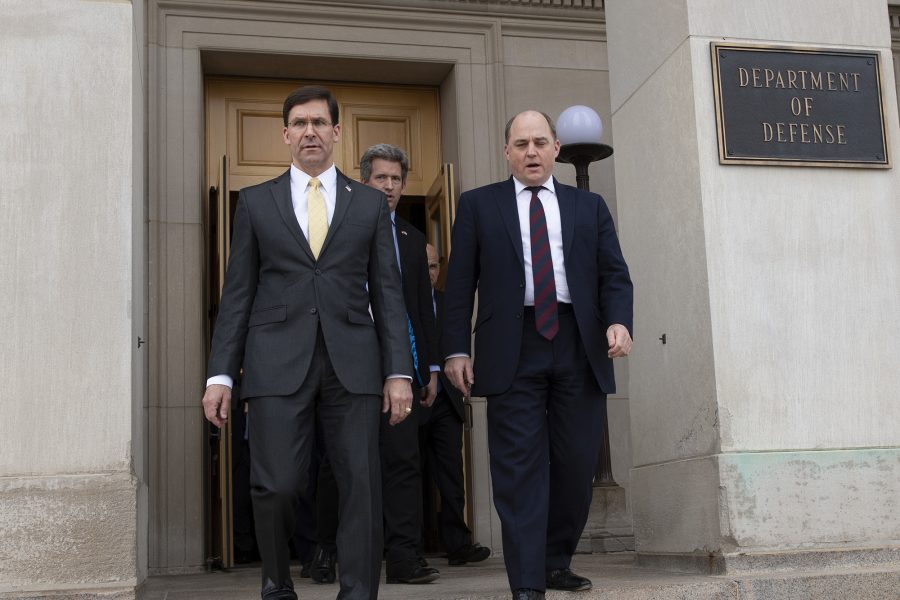The United Kingdom needs to be able to address threats without U.S. support, as the Pentagon continues its push toward the Indo-Pacific under the National Defense Strategy, the head of the U.K. military said March 5.
U.K. Defense Secretary Ben Wallace, speaking alongside U.S. Defense Secretary Mark Esper at the Pentagon, said his country has at times taken for granted that the U.S. will always be there to help address a threat. But with the U.S.’ evolving foreign policy, and more tense relationship with groups such as NATO, the U.K. “should always have the ability to do what we need to do” without American help.
The world is less secure, and all countries seem more stretched, and countries such as the U.K. need to find new ways to meet security interests, he said.
“We have to realize we can’t always rely on the U.S. being there,” Wallace said. “That does not mean that someone’s unreliable, it means that sometimes we’re going to have to do it on our own, or have to do it with other partners.”
While the U.S. shifts its focus—bringing more forces home to either prepare for great power competition or to redeploy to the Pacific—this does not mean a large reduction in places such as Europe, Esper said. For example, the large-scale Defender Europe 20 is underway currently with about 20,000 U.S. troops participating.
The meeting of the two Secretaries comes shortly after the U.S. and Taliban agreed to a peace deal aimed at ending the war in Afghanistan. For the U.K., which has been deployed in Afghanistan since the beginning alongside the U.S., Wallace said he is encouraged that the deal is “conditions based” and allows for a prolonged drawdown instead of a quick withdrawal.
As seen by recent attacks and the continued activity of ISIS-Khorasan, “We still have a threat to deal with. It is definitely a week-by-week, day-by-day examination” of the progress, Wallace said.
Esper repeated that under the deal, the U.S. still has the ability to protect Afghan forces, as seen by recent airstrikes to stop Taliban attacks on local checkpoints. Esper could not point specifically to where in the agreement the Taliban agreed to reduce attacks on Afghan targets, saying there are two addendums to the peace deal that are not publicly releasable. However, as part of intra-Afghan negotiations between the Kabul-based government and the Taliban, there needs to be a comprehensive peace agreement, he said.
“It’s going to be a long, windy, bumpy road,” Esper said.
